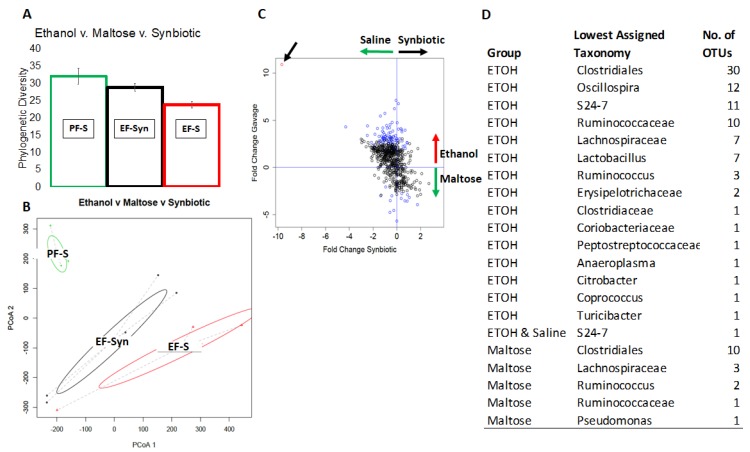Figure 1.
The effect of ethanol and synbiotic on the microbiota. Mice were fed a liquid diet containing ethanol (5% v/v) or pair-fed a diet with maltose dextrin isocalorically substituted for ethanol for 10 days. Mice were randomized into groups and supplemented with a butyrate-targeting synbiotic or saline. On day 11, mice were treated with a single 5 g/kg gavage of ethanol. At 6 h post-gavage, the cecum was dissected and flash frozen and kept at −20 °C until analysis (see methods). (A) Ethanol exposure decreased the overall phylogenetic diversity of the cecal microbiota (p = 0.001), which was partially recovered by synbiotic supplementation; (B) ethanol significantly altered microbiota community composition and structure, as assessed by a weighted UniFrac analysis followed by PERMANOVA (p = 0.007). The ethanol-synbiotic group clusters away from animals only receiving ethanol indicated some recovery, but the difference was not significant; (C) differential abundance analysis, executed as a negative binomial Wald test, revealed operational taxonomic units (OTUs) significantly enriched in either the maltose or ethanol groups (blue circles) or both ethanol and saline (red circle); (D) list of microbial taxa enriched in either the maltose, ethanol, or saline groups. n = 4-6 mice per treatment group.

